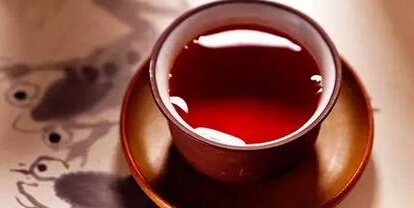
Drinking tea in excess can increase the body's water content, burdening the heart and kidneys. Overly strong tea can overstimulate the brain, leading to increased heart rate, frequent urination, and insomnia. Excessive intake of caffeine and other compounds in tea may also be harmful for certain health conditions. Therefore, moderation is key when it comes to tea consumption. The appropriate amount varies depending on factors such as drinking habits, age, health status, living environment, and customs.
Generally, healthy adults with a regular tea-drinking habit can consume about 12 grams of tea per day, divided into 3-4 servings. Those with higher physical exertion or exposure to toxic substances may consume up to 20 grams daily. Individuals who consume large amounts of fatty foods, such as beef and lamb, or those who smoke and drink alcohol, may moderately increase their tea intake.
Elderly individuals, children, and pregnant women should reduce their intake and opt for lighter tea. For elderly individuals, especially those over 50, excessive or overly strong tea should be avoided, as high caffeine intake can lead to insomnia, tinnitus, blurred vision, irregular heartbeat, and excessive urination.
Elderly individuals with heart conditions should drink warm, mild tea and avoid tea in the evening, opting for plain water after dinner instead. As people age, their digestive systems produce fewer enzymes, reducing digestive efficiency. Excessive tea consumption can dilute stomach acid, impairing digestion and weakening the stomach's ability to fend off pathogens, increasing the risk of gastrointestinal infections.
Many elderly individuals have poor dental health and consume fewer fiber-rich vegetables, coupled with reduced physical activity, leading to slower intestinal motility and constipation. Strong tea, with its tannins binding to dietary proteins, can form hard-to-digest protein masses, exacerbating constipation.
With declining kidney function, elderly individuals often experience symptoms like urinary incontinence. Excessive or strong tea, due to the diuretic effects of caffeine, can further burden the kidneys and worsen incontinence, causing greater discomfort.